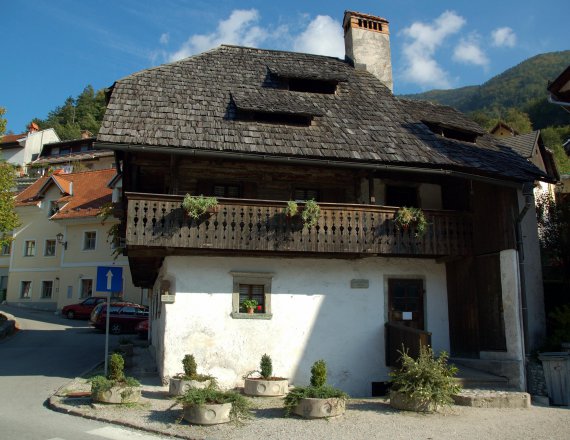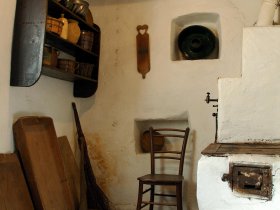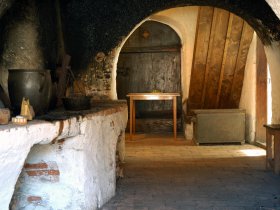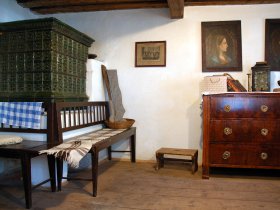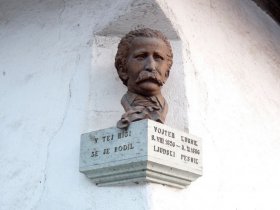Kurnik House
Life as we can only remember it
The birthplace of the poet Vojteh Kurnik is an exceptional remnant of Tržič building heritage. The house with its stone-built ground floor, wooden upper storey, shingled roof, black kitchen and openings in the roof for the purpose of drying is a blend of rural and market town architecture of the 18th, 19th, and first half of the 20th century. The house presents the residential environment of a bygone era, while one of the rooms is devoted to the life and work of the poet.
Kurnik House occupies a special place in Tržič. After a fire in 1689 turned most houses below the parish church into ash, in the middle of the 18th century a new house was erected on the foundations of one that had burned down, and it has been preserved up to the present day.
Kurnik House is among the most valuable testaments of residential culture in Tržič
Its more than 300-year-old history is inspiring. Over that time the house, which was referred to locally as "pri Rodarju", changed owners as well as its form and function. Today it bears the name of the poet and cartwright who was born in this house in 1826 - Vojteh Kurnik.
The ground floor is built of stone while the upper storey is made of wood, as is the shingle-covered roof. There are openings in the roof (raised sides) for drying wool or canvas. It has two black kitchens and a white kitchen on the ground floor, while the appearance of the upper storey is dominated by a long, narrow balcony called a "gank".
On the ground floor the local residential culture is depicted while one of the bedroom chambers is given over to showing the life and work of Vojteh Kurnik.
Vojteh Kurnik
Vojteh Kurnik (1826 – 1886) was a cartwright by occupation. He was an educated man who wrote poetry and collected proverbs and other heritage. During the time when Tržič was known as a German-speaking place, he wrote in Slovene – he was the best known Tržič poet from the Romantic period. In his poems he described his home town, its inhabitants, their work and their customs. It is said that he wrote his poems on wood chips and then later copied them into a notebook. He characterized his poetry and the role models that he followed with the following words:
" Vodnik is my father,
Prešeren is my uncle
and so I am a supporter
of Slovenian wisdom!"
ContaCt and more information
Tržič Museum, Muzejska 11, 4290 Tržič
T: 04 53 15 500
E: trziski.muzej@guest.arnes.si
Opening hours
By prior arrangement
Entrance fee
- families: 5 EUR,
- children, adolescents, students and retired: 1.50 EUR,
- adults: 2.50 EUR

